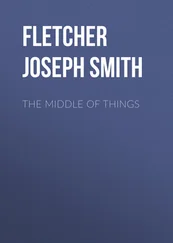DON’T GO. AND I DIDN’T GO. Even though I’d waited all day, all my life, for that moment, unique among all moments, even though I’d imagined in detail the world just beyond the boundary of that moment, I didn’t go. Don’t go. Even though a stork rose up in flight, gliding like an embrace we’ve never known but imagine to be possible, even though I looked at her with my whole being, even though I said wait for me, tonight I’ll come and fetch you, even though the twilight had seen us where only sincere souls go, I came into this room, lay down on this bed, let that unique moment pass by indistinctly and let my life become a painful place of squandered moments, moments squandered before their time, during the weariness of their time, after the bad memory of their time, in the tedium of having and expecting nothing. Don’t go. And I didn’t go. You didn’t lose me, mother. I lost myself. I failed to find myself where I’d never been, where I’ll never be. And I don’t blame you at all, as I don’t blame the moon that rises every night, or the sun, or the earth that pulls me. I don’t blame you at all. And now that I know where you are, you who always seemed forgotten over there, you whom I always saw forgotten amid the ruins of a muffled silence, amid what men one day named death, amid what men one day named night and cold; now that I know where you are, I have to get up from this bed. It’s already very late, darkness has covered the fields, and the plains are nothing but darkness: the screeching of bats, the owls’ whooping, the crickets, and the world’s vast silence. I have to get up from this bed. I slowly close my eyelids to this sun I see in front of me, this sun that enters me not to cleanse me of shadows but to suffocate me. I slowly open my eyelids, and in this room’s darkness I begin to see this body, perfectly still, which doesn’t seem mine. I slowly take possession of it: first the arms, which I raise, then my legs, and I sit up in bed. I’m myself again. I need to wash and put on clean clothes. I remove my trousers from my ridiculously thin legs. I start to remove my shirt, and it’s stuck to the dried blood on my back; I work it loose from bottom to top, and it’s a membrane that pulls off scabs stuck to the fabric. I think: pain exists to forewarn us of a yet greater suffering. I put on clean socks. I clean off my back with a towel. I put on a white undershirt, a clean shirt, clean trousers. I don’t put on my cap. I go to the kitchen. Dry logs crackle in the fire, and its dying light is the only light. My mother’s body is dark; only her old and sad face glows. I walk across her gaze. I open and close the outside door. The night is how I know it: deep and black, wrapping me in itself and telling me that I’m the same night that the night is. I don’t stick my hands in my pockets, I let them and my arms hang free. I lift my eyes and gaze at the night in the sky, not the stars but the black space that separates them.
I REMEMBER, AND I STILL FEEL in my hands, that dawn, that slow light. And everything was cruel because everything was like it was on other days, because there was nothing that took pity, because time was passing through the world, or the world though time, and I, a particle, a tiny bit of the world, couldn’t stop it. Dawn. The first sounds of dawn. Birds. The first wave of people going by outside. And my mother’s voice. My mother repeating the same words, the same words, the same words. Me having to get up. Feeling each of my movements to be isolated from the ones before and the ones after it, and each fraction of each movement harsh and cruel, each millimeter against me. In the bedroom, my mother’s eyes. I got her dressed. I gave her some coffee. And when I took her into the yard, the dawn was already a new morning. And I still feel in my hands the warm breeze, warming up slowly, warming up until it was a bellows blowing a fiery breath. Like the breeze that arrives here from the town and touches my face and neck, and tries to hold me here so that I’ll never reach the town and it will never be night. Like the poppies, here amid the flames of the wheat fields, like still-brighter and hotter embers. And then, when the days stopped being different from each other, when the walk to the Mount of Olives became longer, when I stopped seeing José, when I began to leave a little bit earlier to avoid meeting José, when the days all blended into a single day that’s all days, then old Gabriel knocked on my door and, before sitting down next to my mother in the yard, said I’ve brought someone who wants to meet you. And the frightened face of Salomão appeared, very faintly, on the threshold. Old Gabriel told him to sit down, pulled over a chair for him, pulled over a chair for me, and went out into the yard. I joined my hands together like a little girl, I joined my feet together, and looked at the floor, without seeing the floor, focusing only on the edges of my gaze and on the silence. He also sat still, shifting now and then only to get comfortable in the uncomfortable chair, and he never stopped looking at me, with a rat’s eyes, as if he were examining a fearful object. We sat there like that for two hours, face-to-face without talking, just feeling each other’s presence, intimidated by each other’s presence. And when old Gabriel returned, he also stopped to look at us, perhaps smiling, and to Salomão he said shall we get going? and Salomão said hmm, or said uh-huh, and suddenly stood up. Before they left, old Gabriel said see you tomorrow. Salomão didn’t say anything. And the next day, or two days later, Salomão’s mother showed up. She knocked on the door and entered. She walked past me, sat down, and began to talk very fast. She said her son wanted to marry me, and she said we’d get married in three weeks, and she said our courtship would take place at her house, every other day and always in her presence, as she didn’t want any hanky-panky, and she said our courtship would begin the next day, as there was no time to lose, and she said to show up in the early evening, and she said she liked trimmed nails and scrubbed necks. She said she admired how I’d raised myself, and she said it was her idea for her son to marry me, and she said her son needed the care of a kind wife, and she said I’d be a good match for him. She said that he’d greatly disappointed her by refusing to work with his father, and she said that his father was a horseshoer but that he, Salomão, had always been afraid of animals. She said his father had died from a kick in the head by a mule he was shoeing, and that much I already knew, and she said she’d gotten a job for Salomão at Master Rafael’s carpentry shop, where he still worked. She said she was all alone. I didn’t say anything. She stood up, said good day, and left because she had things to do. And so for three weeks, every other day, in the early evening, Salomão and I had our courtship. We sat next to each other in separate chairs, and his mother sat opposite, knitting a little jacket for the son she said we were going to have in two years’ time. He looked at me dumbfounded, I looked at the floor, and his mother talked. She told stories of when Salomão was little and was afraid of heights, of the dark, of mice, of spiders, of lizards, of grasshoppers, of crickets, of centipedes, of flying ants. And three weeks later I got married. I don’t know on what date, and I don’t feel like figuring out in which month, but I know it was a Sunday. I took my mother by the arm to the church. Going on foot through the sun-battered streets, I in a wedding dress lent to me by Salomão’s mother, we got there on time. The devil was already at the altar. The others were late. José, Salomão’s cousin, didn’t come because their mothers didn’t get along. The others were late, but they got there. Salomão’s mother pulled her son by the arm as if she’d dragged him there by force. Almost purple, she wore a very tight dress, an imitation-pearl necklace that dug into her neck, and a nosegay of plastic tulips on her head. The devil began, and the words he said in the tiny space of the church, spoken as if he were uttering them from the pulpit of the world, blended with his smile. And when the devil was about to ask for our yeses, Salomão’s mother fell to the floor. Dead. Wide-eyed, asphyxiated, choked by her dress and necklace and weighed down by the tulips. And the devil quickly asked us the question, we said yes yes, and only then turned our attention to the deceased. So it was a mixture of wedding and funeral, for as soon as we answered the question, they carried Salomão’s mother on a pew over to the altar, and the devil, with his lips pressed in a kind of smile, said some words on her behalf. On exiting from the church, we were greeted by a funeral wagon with a coffin, as one of the guests, and the guests were all her neighbors, had got out the word. They laid Salomão’s mother in the coffin and shut the lid. Though no one was especially grieved, we made the trip to the cemetery in silence and at the speed of a religious procession. I left my bridal wreath on her coffin, and those were the only flowers she had. With my mother on one side and Salomão on the other, we returned to the town. By the time we reached his street, the hem of my dress was black from having trailed it in dirt and dust. He opened the door, we went in, and there was a large table full of food in the living room. Famished, we took three plates and helped ourselves. He waited for me to feed my mother, and then we had lunch together. For a month we ate codfish croquettes and coconut balls wrapped in collared paper. The sugar cookies and lard cakes lasted almost a year. Today I still remember all of this vividly, but I know that one day, looking back, I’ll remember none of it. What I’ll never forget, after no matter how many years and deaths, is that endless night, moment by moment, like a night that was an ocean, and I a pebble at the very bottom, never touched by the light. And I arrive home precisely when the afternoon ends. Salomão has still not arrived. I go to the yard and bring my mother into the kitchen. I go back to the yard by myself. I lift my eyes and gaze at the night in the sky, not the stars but the black space that separates them.
Читать дальше












